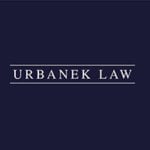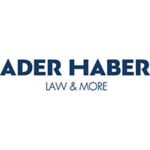-
Overview
After centuries of Spanish rule, Puerto Rico became a territory of the United States of America (“U.S.”) in 1898. In 1952, Puerto Rico became a commonwealth of the U.S. and adopted its own constitution. Puerto Rico has its own laws and regulations but is also subject to certain U.S. federal laws and regulations.
As a result of its history, Puerto Rico has a mixed legal system in which civil law, by way of its Civil Code, interacts with common law and federal law. Puerto Rico’s real property laws are governed mostly by civil law, even though certain U.S. common law doctrines and concepts have been adopted.
-
What is the main legislation relating to real estate ownership?
The Civil Code of Puerto Rico, Act No. 55-2020, as amended (the “Civil Code”), governs the general aspects of real estate ownership. In addition to the Civil Code, other laws such as the Registry of Property of the Commonwealth of Puerto Rico Act, Act No. 216-2015, as amended (the “Registry Act”), and the regulation adopted in connection therewith, to wit, the Real Property Registry Regulation, dated August 31, 2016 (its “Regulation”) govern the ownership and registration of real estate in Puerto Rico.
The Registry Act and its Regulation contain the principal legal framework for the operation of the Registry of Property of Puerto Rico (the “Registry”) and the recordation of real property interests and rights.
-
Have any significant new laws which materially impact real estate investors and lenders come into force in the past year or are there any major anticipated new laws which are expected to materially impact them in the near future?
No significant law has been enacted since December 2023 and no new laws are anticipated.
-
How is ownership of real estate proved and are ownership records available for public inspection?
There is no specific requirement or form to prove ownership of real estate, as there are many ways of acquiring ownership of real estate in Puerto Rico. Most real estate transactions are made through the execution of a public deed that is filed for recordation in the Registry. Therefore, the Registry is the official, yet voluntary, title registration system in Puerto Rico. To gain access to the Registry and be able to record ownership of a real property existing in the Registry’s records, the transaction (for example, an assignment, donation, conveyance, purchase and sale, foreclosure, etc.) must be effected through the execution of a public deed before a Puerto Rico licensed Notary. Thus, the recordation in the Registry of the transaction contained in the public deed is the most common proof of ownership of real estate.
The recordation system described above provides publicity and certainty to the ownership of real estate and other real property rights. Generally, any acquisition or conveyance of, or encumbrance over, real estate not registered at the Registry has no effect against bona fide third parties. For those reasons, recordation of real estate ownership or proof of filing of the relevant deed of acquisition of title in the Registry is generally required in commercial transactions.
The Registry’s records are publicly available through the Registry’s website, “Karibe”. Any person may register with Karibe and search within its records. While Karibe provides information on all real estate transactions effected therein and copies of its records (at a nominal cost of around $10.00), the copies of the documents submitted to the Registry via Karibe are only publicly available from the date on which they are filed until 30 days after their recordation in the Registry.
-
Are there any restrictions on who can own real estate, including ownership by any foreign entities?
Generally, there are no restrictions as to who can own real estate, except for minors and incapacitated persons. Under specific circumstances, U.S. federal law may prohibit the acquisition of real estate by certain foreign persons.
In addition, the acquisition, ownership or any other form of direct or indirect control of land for agricultural purposes in excess of five hundred (500) acres by any legal entity is prohibited. When determining whether the foregoing prohibition has been breached, the courts may consider all the properties comprising an entity’s real estate portfolio and that of its subsidiaries and/or affiliates under common control. Furthermore, the Constitution of the Commonwealth of Puerto Rico also provides that “no corporation shall . . . be permitted to hold or own real estate except such as may be reasonably necessary to enable it to carry out the purposes for which it was created.”
-
What types of proprietary interests in real estate can be created?
In Puerto Rico, there are several types of proprietary interests in real estate. The following is a list of the most common proprietary interests:
Fee simple title (“pleno dominio”): means full ownership over a real property.
Common ownership (“comunidad de bienes”): exists when two or more persons or entities are joint and common owners of a real property. Common owners have the right to participate in the administration of the common property. They also have equal rights to use the entire asset, and they must contribute to the necessary expenses in proportion to their respective interests in the real property. Common owners have a statutory right of first refusal if other co-owners decide to sell their share to a third party.
Lease (“arrendamiento”): temporarily conveys control and use of a real property to a third-party lessee for the use and enjoyment of such property for a specific term in exchange for a lease payment. If a lease term is not specified, the lease is deemed to be entered into for a term of one year. Once the term has expired, the lease continues under the same terms and conditions agreed upon until either party notifies the other of its desire to renew or terminate the lease (holdover rights). Also, unless otherwise agreed among the parties in a lease agreement, the lessee may sublet the leased property. While leases are deemed personal rights, the same have access to the Registry pursuant to the Civil Code and the Registry Act. A lease agreement may be recorded in the Registry by (i) conversion of a private lease into a public instrument pursuant to the execution by the lessor and lessee of a public deed before a Notary, or (ii) executing a lease agreement in the form of a public deed before a Notary. The recordation of the lease in the Registry will require the payment of stamp taxes and recordation fees based on the rent payable.
Condominium property (“régimen de Condominio”): establishes a regime pursuant to which fee simple title and common ownership coexist. In this regime a person is the fee simple owner of one or more individual unit(s) within a building. The common areas that serve the individual units (e.g., hallways, elevators, lobby, gardens, stairways, among others) are jointly owned by all the owners of the units.
Surface right (“derecho de superficie”): is a property right over another person’s real estate, which entitles a person, called the superficiary, to build on, below or above a property or on an existing building belonging to another person.
Condohotel property (“régimen de Condohotel”): establishes a regime similar to the condominium property regime pursuant to which fee simple title and common ownership coexist. This regime was enacted for purposes of providing a governance structure whereby some or all of the units in the regime may participate in a vacation rental program. The units and rooms participating in the rental program are devoted to the accommodation of transient guests. The regime may contain commercial, office and other uses consistent with the regime.
-
Is ownership of real estate and the buildings on it separate?
Generally, the ownership of real estate and the buildings developed thereon is not separate. Ownership of a real property comprises a right of accession to everything that is attached or incorporated, naturally or artificially, to that property. This means that everything built, fixed or planted on the land, including improvements or repairs, become part of the property.
However, if surface rights are constituted, the ownership of real estate and the buildings on it may be separated. Surface rights (“derecho de superficie”) are a property right over another person’s real estate which entitles a person, called the superficiary, to build on, below or above a property or on an existing building belonging to another person. The surface right must be executed in a public deed and recorded in the Registry.
Furthermore, a lease agreement may grant the lessee the right to build on the leased property with title to the structure vesting in lessor at the end of the lease. However, in contrast to surface rights, such right is not presumed and must be specifically included in the lease.
-
What are common ownership structures for ownership of commercial real estate?
Commercial real estate assets are commonly owned by individuals, trusts, limited liability companies, corporations, or partnerships. The appropriate structure for owning a property will depend on tax, management, estate planning, liability, and transferability considerations.
-
What is the usual legal due diligence process that is undertaken when acquiring commercial real estate?
The real estate acquisition process may take different forms. A real estate acquisition transaction may begin with the execution of a letter of intent (“LOI”) or other non-binding agreement. In the LOI, the parties establish their intention to enter into a negotiation, without becoming legally bound, and set up an outline to conduct a due diligence process and ultimately, consummate the transaction. In other cases, the parties involved may enter directly into a Purchase and Sale Agreement (“PSA”) or Option to Purchase Agreement (an “Option”) without executing a LOI. However, under the PSA, the seller typically binds itself to sell while the purchaser binds itself to purchase, subject to certain conditions. Under the Option, the seller binds itself to sell while the purchaser is not necessarily bound to purchase although it may suffer economic consequences as a result of not exercising the Option. As part of all of the foregoing, the parties may agree to provide for a due diligence process for a determined period of time in order to review matters such as zoning, title, surveys, environmental conditions, permitting, service agreements, leasing agreements, and, generally, any and all matters related to the real property.
-
What legal issues (if any) are outside the scope of the usual legal due diligence process on an acquisition of real estate?
The scope of due diligence is usually set forth at the beginning of the transaction and agreed to by the parties. As it pertains to real estate due diligence, a lot of information related to real estate is publicly available either online or by visiting the relevant government agencies. Issues related to environmental and land use conditions are investigated through due diligence performed by licensed professionals rather than through legal due diligence.
-
What is the usual process for transfer of real estate, and when does liability pass to the buyer?
Transaction Step Seller Purchaser Comments Letter of Intent (“LOI”) or other non-binding agreement – Review and negotiate LOI – Prepare and negotiate LOI – The LOI varies by transaction. – Unless otherwise agreed, the LOI is not binding, except for certain aspects (confidentiality, exclusivity, and others)
Purchase and Sale Agreement (“PSA”) or Option to Purchase (the “Option”) – Review and negotiate PSA or Option – Provide due diligence materials to Purchaser
– Draft/revise closing documents– Prepare and negotiate PSA or Option
– Conduct due diligence
– Prepare and negotiate financing (if applicable)
– Draft/revise closing documents– The PSA or Option varies by transaction. Signing of PSA or Option – Closing – Upon signing the PSA or Option, deposit earnest money in escrow.
– Secure financing (if applicable)
– Complete outstanding obligationsClosing – Execute closing documents, including deed of purchase and sale – Execute closing documents, including deed of purchase and sale
– Release escrow and deliver remaining funds to seller– Escrow agent will release funds upon the satisfaction of the requirements
– If Purchaser financed the purchase with the real estate as collateral, execute a deed of mortgagePost-closing – Provide any other documents required and agreed to (keys, lease, and others) – Close accounts relating to the property
– File notices to the required agencies, tenants and other parties (if applicable)– Open or transfer accounts relating to the property – File notices to the required agencies, tenants and other parties (if applicable)
Unless the Seller and Purchaser agree otherwise, generally Purchaser is responsible for any and all obligations concerning the property from and after the execution of the Deed of Purchase and Sale. -
Is it common for real estate transfers to be effected by way of share transfer as well as asset transfer?
Yes, both are common.
-
On the sale of freehold interests in land does the benefit of any occupational leases and income derived from such lettings automatically transfer to the buyer?
Yes. Unless stated otherwise, occupational leases and related income are automatically transferred (by operation of law) with the sale of the commercial real estate. It is customary, however, to notify tenants as to the sale and instruct them to pay the new owner once the transaction is closed.
-
What common rights, interests and burdens can be created or attach over real estate and how are these protected?
A wide variety of rights, interests and burdens can be created or attached to real estate. The following are common examples:
- Mortgage: It is the most common type of guarantee used for real estate. See Q.24.
- Option to purchase: is the right which entitles the holder to decide, during an agreed period of time, to acquire a real property.
- Lease: the lessor temporarily assigns to the lessee the use and enjoyment of a property in exchange for payments. The parties may include an option to purchase in a lease agreement.
- Easements and Restrictive Covenants: are encumbrances over real property which can limit property use rights for the benefit of another property or person.
- Usufruct (“usufucto”): is the real property right of use and temporary enjoyment of another person’s property in accordance with its nature and purpose. The beneficiary of a usufruct right can profit from the other person’s property as if it belonged to the beneficiary.
- Surface Rights (“derechos de superficie”): are limited property rights over another person’s real estate, which entitle a person, called the superficiary, to build on, below or above a property or on an existing building belonging to another person. Surface rights create a lien upon a property.
Inasmuch as the foregoing rights, interests and burdens affect real properties, they are commonly constituted by execution of a public deed and filed for recordation in the Registry. While recordation in the Registry is advisable it is not compulsory for most of these. However, recordation is required for the creation of a mortgage and surface rights (“derecho de superficie”).
-
Are split legal and beneficial ownership of real estate (i.e. trust structures) recognised?
Yes. If a trust owns real estate, the trust is the legal owner of all property held in trust, even if it is held for the benefit of another person. The real estate property is recorded in the Registry in the name of the trust.
-
Is public disclosure of the ultimate beneficial owners of real estate required?
No. Nonetheless, when purchase and sale transactions are effected through a public deed, the Notary is required to verify the identity and authority of the person who executes the deed. This information is referenced in the deed.
-
What are the main taxes associated with real estate ownership and transfer of real estate?
Stamp taxes, Registry recordation fees and Notarial fees: The execution of public deeds and their recordation in the Registry requires payment of stamp taxes, recordation fees and tariffs and other applicable fees, including internal revenue stamps, legal aid stamps, notarial tariff, filing vouchers, recordation vouchers, and other filing fees). Please see Q.24
Municipal Property Tax: Real estate is subject to a municipal tax. Each municipality establishes the tax rate for each type of property. Thus, the tax rate to be paid varies by municipality. The amount of tax to be paid is based on the appraisal value of said property, as established by the Municipal Revenue Collection Centre (“CRIM”, by its Spanish acronym). Also, the properties are subject to reappraisal considering any: (i) improvements, (ii) machinery, and (iii) land transactions effected on the property, such as aggregations, segregations. In addition to assessing properties, CRIM is the government agency responsible for collecting property taxes.
Municipality Transfer Tax: Some municipalities such as the municipalities of Dorado and Isabela have enacted municipal ordinances requiring the payment of a fluctuating special property transfer tax in connection with the sale of real property located within their respective municipalities.
Capital Gains: Sellers of real property may be subject to income taxes on the capital gains generated by the sale of the real estate asset, if any. However, certain transactions are exempt from this type of tax: like-kind exchanges, involuntary conversions, transfer of property caused by divorce, and others.
-
What are common terms of commercial leases and are there regulatory controls on the terms of leases?
Commercial leases are subject to the provisions of the Civil Code, but the Civil Code does not regulate the same. Below are some of the most common terms in commercial leases:
Duration:
There is no required maximum or minimum duration, except that leases cannot be perpetual.
Renewal Rights:
If not stated otherwise in the contract, upon expiration of the agreed term of the lease, the lease may be subject to holdover rights on the same terms of the lease until either party notifies the other party of its desire to terminate the lease.
Subleasing rights:
If not expressly prohibited in the lease, the lessee may sublet all or part of the leased property, without prejudice to its liability towards the lessor for the performance of the lease. The lessor can only refuse if the sublessee does not have the same economic qualifications as the lessee or when the use of the leased property by the sublessee would cause the lessor economic harm.
Rent:
The rent is agreed to by the contracting parties. The parties may agree to periodically increase rent or tie the rent increase to a certain index. Commercial leases may contain a base rent plus additional rent to cover common area maintenance costs as well as participation rent based on sales or income.
Obligations of the lessor:
The lessor is obligated, unless stated otherwise, to deliver the property to the lessee in a condition suitable for its use, make or pay for improvements necessary for the use, carry out the necessary repairs within a reasonable time, and refrain from making improvements that diminish the agreed use.
Obligations of the lessee:
The lessee is obligated, unless stated otherwise, to: not vary the agreed use, keep and maintain the property; carry out, at the lessor’s expense, necessary repairs, when these are urgent; to pay the rent on time, in accordance with the agreed terms; to pay the utilities, charges and contributions; to notify the lessor of any encroachment, disturbance or imposition of an easement that is carried out or attempted against the leased property, as well as of any damage or condition; and allow the lessor to inspect the leased property.
Termination rights:
The termination rights vary depending on the activity. The contracting parties may agree to terminate the lease before the term.
Unless stated otherwise, the lessor may terminate the lease when the lessee abandons or ceases to use the leased property or varies the agreed use; fails to comply with the obligation to maintain the leased property; or fails to pay the agreed rent.
Unless stated otherwise, the lessee may terminate the lease when the lessor breaches the warranties relating to eviction; or deprives the lessee of the use of the property.
-
What remedies are commonly available for landlords in the event of a tenant breach of a commercial lease?
Under the Civil Code, in the event of a breach by lessee, lessor may seek: (i) compensation for late payment; (ii) specific performance of lessee’s obligation; (iii) compensation for damages, including consequential damages and loss of profit; (iv) eviction; and/or (v) termination of lease. For termination rights, see Q. 18 above. The parties may also agree to other remedies as long as they are not contrary to law, morals, or public policy.
-
How are use, planning and zoning restrictions on real estate regulated?
Governmental Regulations:
Municipalities and governmental agencies regulate the use, planning and zoning restrictions on real estate. On some occasions, U.S. federal law may pre-empt Puerto Rico law. Municipalities and governmental agencies may regulate zoning, use, building size and height, construction area and more. Depending on the proposed use of the property, the owner may need to seek approval from the municipality in which the property is located, the central governmental agency or both.
Private Restrictions:
Real estate may also be subject to private restrictions. A wide variety of rights, interests and burdens can be created or attached to real estate in order to regulate it. See Q.14. The most common is the restrictive covenant. Restrictive covenants must be reasonable, serve a general plan for improvement, be compatible with the local and U.S. federal laws, be constituted via public deed and recorded in the Registry.
-
Who can be liable for environmental contamination on real estate?
Puerto Rico is subject to both Puerto Rico and U.S. laws and regulations. Within this legal context, various parties can be held liable for environmental contamination:
- Individuals and companies: Any person or entity that causes pollution can be held responsible. This includes both civil and criminal liability for violating hazardous waste regulations, water quality standards, and other environmental laws or regulations.
- Property owners: Owners of properties where contamination occurs can also be held responsible, especially if they fail to take necessary actions to prevent or mitigate the contamination.
- Operators: Those who operate facilities or activities that result in contamination can be held accountable. This includes ensuring compliance with environmental permits and regulations.
- Government entities: In some cases, government agencies or municipalities may be held liable as owners or operators themselves, if they fail to enforce environmental laws or regulations, or if their actions contribute to the contamination.
Responsibility for environmental contamination is enforced by several specialized agencies through the implementation of Puerto Rico and U.S. laws and regulations. Some of the key agencies include the Puerto Rico Department of Natural and Environmental Resources (DNER) (primarily responsible for the conservation, management, and protection of Puerto Rico’s natural resources, but also issues numerous environmental permits), the U.S. Environmental Protection Agency (EPA) (which oversees the implementation of federal environmental regulations), the Puerto Rico Aqueduct and Sewer Authority (PRASA) (which regulates wastewater discharges into its system), and the Puerto Rico Department of Health (DOH) (which establishes surface and groundwater quality standards). In addition, government agencies and private parties can seek to impose responsibility over contamination through judicial actions before Puerto Rico courts or the U.S. District Court for the District of Puerto Rico. Depending on the circumstances, plaintiffs may invoke several statutes for this purpose, including the Puerto Rico Civil Code, the Environmental Public Policy Act, the Clean Air Act (CAA), Clean Water Act (CWA), Resource Conservation and Recovery Act (RCRA), and the Comprehensive Environmental Response, Compensation, and Liability Act (CERCLA). Liability for real estate contamination is typically joint and several, although responsible parties may seek equitable apportionment.
-
Are buildings legally required to have their energy performance assessed and in what (if any) situations do minimum energy performance levels need to be met?
Building owners in Puerto Rico are subject to specific requirements regarding energy efficiency, although not performance assessments. These requirements are outlined in the Puerto Rico Energy Conservation Code (PRECC), which is part of the Puerto Rico Building Code. The requirements are aimed at promoting energy conservation and reducing the environmental impact of buildings in Puerto Rico.
-
Is expropriation of real estate possible?
Yes. The Government of Puerto Rico may expropriate real estate through its agencies, including the Department of Transportation and Public Works, the Department of Housing, the Puerto Rico Industrial Development Company, and others. Each agency determines which land it will expropriate and the proposed use for the property.
This power is limited by law and the Constitution. To expropriate real estate, (i) it has to be expropriated for public use; (ii) just compensation must be paid to the owner; and (iii) the government must follow the procedural requirements set forth in the respective laws and regulations.
-
Is it possible to create mortgages over real estate and how are these protected and enforced?
Yes. A mortgage is an encumbrance over a real property as security for fulfilment of an obligation. For the mortgage to be validly constituted, it is indispensable that it be executed in deed form before a Notary and recorded in the Registry. If it is not cancelled (by public deed or otherwise), the mortgage lien shall subsist in full and encumber the totality of the real property, even if the underlying secured obligation is reduced or terminated.
Upon debtor’s failure to pay the loan secured by the mortgage, a claim for the recovery of the unsatisfied credit can be made by filing a suit for foreclosure and collection of moneys in court against the owner of the property. After judgment has been rendered, the property may be sold at public auction and the proceeds thereof used to satisfy any outstanding amounts due to the creditor.
-
Are there material registration costs associated with the creation of mortgages over real estate?
Yes. As mentioned in Q.23, to constitute a mortgage over a real property such mortgage must be in deed form and recorded in the Registry. The execution of public deeds and their recordation in the Registry require the payment of stamps taxes, recordation fees, tariffs and other applicable fees, including internal revenue stamps, legal aid stamps, notary fees, filing vouchers, recordation vouchers, and other filing fees. These costs are calculated as follows:
(a) Internal Revenue and Legal Aid stamps must be cancelled on the original deed of constitution of a mortgage and the certified copy of such deed. The original deed is kept by the Notary and the certified copy is filed at the Registry for recordation. Stamp taxes due on the original deed and the certified copies of said deed are determined as follows:
(i) Internal Revenue Stamps to be cancelled on the original deed of mortgage are equal to (for amounts exceeding USD 5,000): USD 2 for the first USD 1,000 and USD 1 for every additional USD 1,000 or fraction of USD 1,000 thereafter.
(ii) The certified copy of the deed to be filed in the Registry will cancel internal revenue stamps of USD 1 for the first USD 1,000 and USD 0.50 for every additional USD 1,000 or fraction of USD 1,000 thereafter.
(iii) Legal Aid stamps to be cancelled on the original deed are equal to (for amounts exceeding USD 50,000): USD 5 for each USD 50,000 or fraction thereof. Legal aid stamps to be cancelled on the certified copy of the deed are equal to USD 2.50 for every USD 50,000 or fraction thereof.
(iv) Both the original and certified copy of the deed require the cancellation of Notarial Aid stamp of USD 1.
(b) Presentation and recordation stamps and vouchers are required for the presentation of the certified copy of the deed of mortgage in the Registry for recordation. Such vouchers are calculated as follows:
(i) When the value exceeds USD 25,000, the vouchers will be equal to USD 50 for the first USD 25,000 plus USD 4 for each additional USD 1,000 or fraction thereof plus one additional presentation voucher of USD 15 and one additional presentation voucher for USD 0.50.
(c) Notarial fees are legally regulated and are, subject to certain exceptions, calculated as follows:
(i) If the mortgage amount does not exceed USD 10,000, fees are USD 150.
(ii) If the mortgage amount exceeds USD 10,000, but does not exceed USD 5,000,000, fees shall be agreed to by the parties and the Notary but cannot exceed one percent (1%) or be less than one-half percent (0.50%) of the mortgage amount. Notarial fees shall never be less than USD 250.
(iii) If the mortgage amount exceeds USD 5,000,000, fees are the amount established in (ii) above up to a mortgage amount of USD 5,000,000 and fees for the amount above USD 5,000,000 shall be agreed to by the parties and the Notary.
-
Is it possible to create a trust structure for mortgage security over real estate?
No. The Registry Act requires that the mortgage be executed in a deed and recorded in the Registry.
Puerto Rico: Real Estate
This country-specific Q&A provides an overview of Real Estate laws and regulations applicable in Puerto Rico.
-
Overview
-
What is the main legislation relating to real estate ownership?
-
Have any significant new laws which materially impact real estate investors and lenders come into force in the past year or are there any major anticipated new laws which are expected to materially impact them in the near future?
-
How is ownership of real estate proved and are ownership records available for public inspection?
-
Are there any restrictions on who can own real estate, including ownership by any foreign entities?
-
What types of proprietary interests in real estate can be created?
-
Is ownership of real estate and the buildings on it separate?
-
What are common ownership structures for ownership of commercial real estate?
-
What is the usual legal due diligence process that is undertaken when acquiring commercial real estate?
-
What legal issues (if any) are outside the scope of the usual legal due diligence process on an acquisition of real estate?
-
What is the usual process for transfer of real estate, and when does liability pass to the buyer?
-
Is it common for real estate transfers to be effected by way of share transfer as well as asset transfer?
-
On the sale of freehold interests in land does the benefit of any occupational leases and income derived from such lettings automatically transfer to the buyer?
-
What common rights, interests and burdens can be created or attach over real estate and how are these protected?
-
Are split legal and beneficial ownership of real estate (i.e. trust structures) recognised?
-
Is public disclosure of the ultimate beneficial owners of real estate required?
-
What are the main taxes associated with real estate ownership and transfer of real estate?
-
What are common terms of commercial leases and are there regulatory controls on the terms of leases?
-
What remedies are commonly available for landlords in the event of a tenant breach of a commercial lease?
-
How are use, planning and zoning restrictions on real estate regulated?
-
Who can be liable for environmental contamination on real estate?
-
Are buildings legally required to have their energy performance assessed and in what (if any) situations do minimum energy performance levels need to be met?
-
Is expropriation of real estate possible?
-
Is it possible to create mortgages over real estate and how are these protected and enforced?
-
Are there material registration costs associated with the creation of mortgages over real estate?
-
Is it possible to create a trust structure for mortgage security over real estate?





























